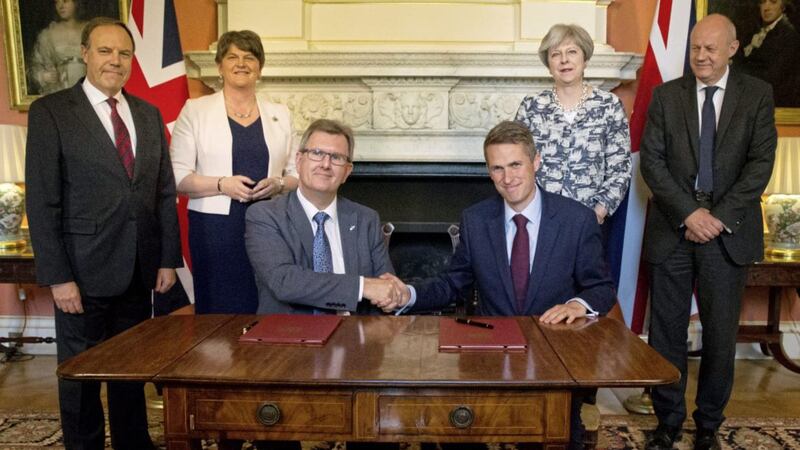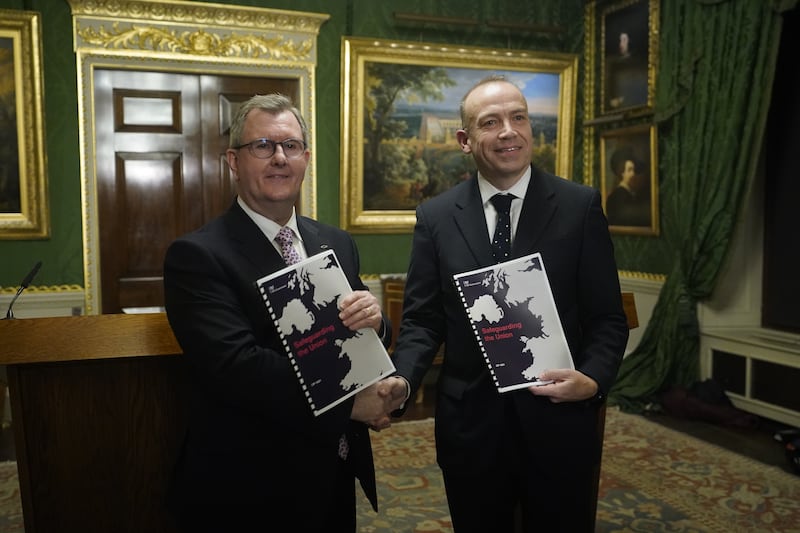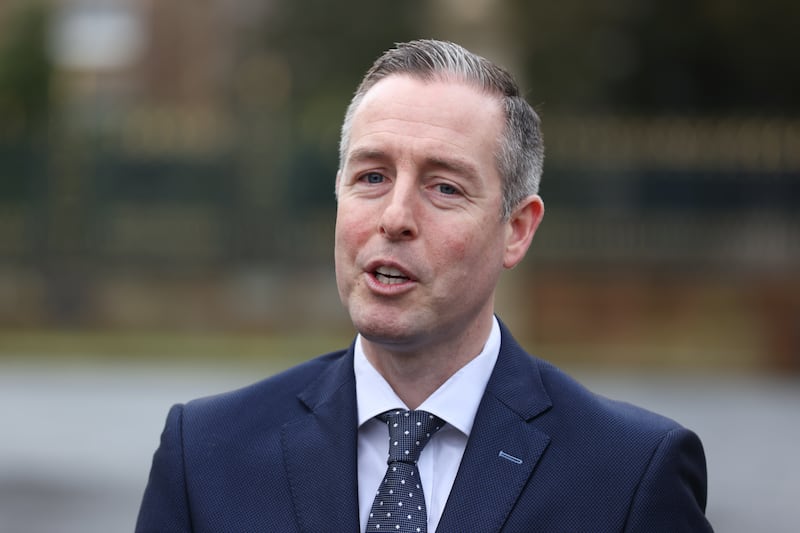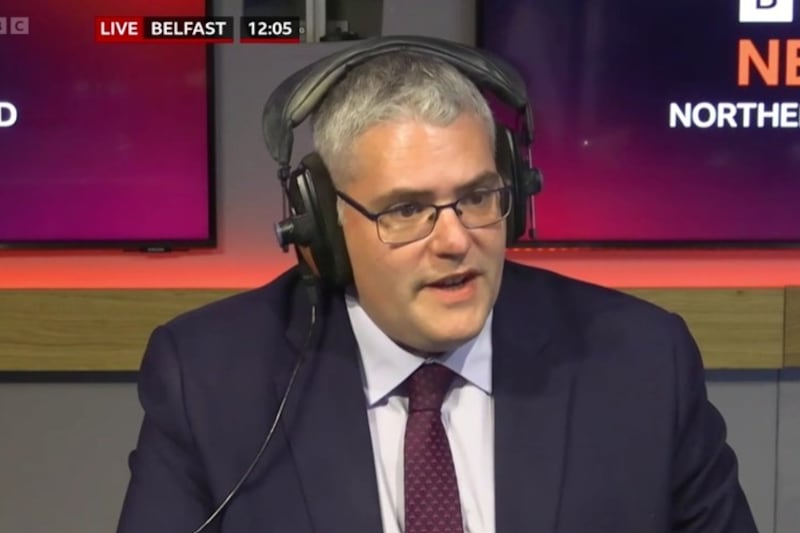THE future of the £1 billion 'confidence and supply' deal remained unclear last night amid growing tensions between the Tories and DUP who again warned they could vote against the government if it does not approve of its Brexit deal.
Speaking yesterday South Belfast MP Emma Little-Pengelly said the party's 10 MPs would withdraw their support from Theresa May's minority government unless it delivered a "sensible" Brexit.
Her comments echoed those of party colleague Sammy Wilson, who warned his party will not vote with the government if it does not "keep its part of the bargain" on Brexit.
Earlier, Mr Wilson suggested the DUP may not back the government's forthcoming budget.
His comments sparked angry responses from some Conservative MPs, including Nick Boles, who said his party "respond no better to threats than proud Ulster men or women do".
Mr Boles' colleague Heidi Allen questioned the wisdom of the confidence and supply deal.
The MP for South Cambridgeshire tweeted: "I really don't wish to be rude to Sammy (genuinely), but it does beg the question, why the heck did we pay £1bn for this! Hate to say I told you so..."
On Thursday, The Sun newspaper quoted a Downing Street source who claimed any failure by the DUP to back the budget "would be a clear breach of the Tory-DUP confidence and supply agreement - meaning Ulster would also have to pay back its £1bn bonus from the government".
Asked about the potential impact on the £1bn agreement yesterday, a DUP spokesman said a vote against the government's budget may not necessarily signal the end of the deal.
In 2017/18, £20m of the deal money was given to health and education.
The last Northern Ireland budget included a further £410m. The money included £20m to tackle deprivation, £100m for health transformation, £200m for the Department for Infrastructure and £80m for general health and education issues.
However, if the confidence and supply deal collapses, the rest of the money is unlikely to be released.
The Conservative Party was contacted for comment last night.
In an indication of the DUP's confidence in its position, the party's director of policy, Belfast councillor Lee Reynolds, retweeted an article from Labour's Mike Gapes, who insisted his party's MPs would not vote for Theresa May's Brexit deal.
Mr Gapes, who described the confidence and supply deal as "unsavoury", accused the Tory government whips' office of "actively briefing the media" that some Labour MPs might back a Brexit deal rather than face the prospect of the UK leaving the EU without any formal agreement.
"The numbers are bogus but the reports have had the desired effect of making at least a few colleagues wonder whether they will have to vote with the government as the lesser of two evils after all," he said.
Mr Gapes said it is certain that no Brexit proposals Mrs May will bring back from Brussels can match Labour's six Brexit tests.
The tests include a check on whether any deal delivers the 'exact same benefits' as the UK presently enjoys as a member of the single market and customs union.
"The government will say the only choice left is no deal, but that is plainly false," he said.
"The Commons has the power and ability to put the country on a different course."
If the DUP does vote against the government on the budget, this will not necessarily bring down Theresa May.
Under the 2011 fixed-term parliaments act, losing a confidence vote no longer automatically triggers an election.








